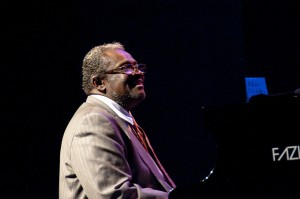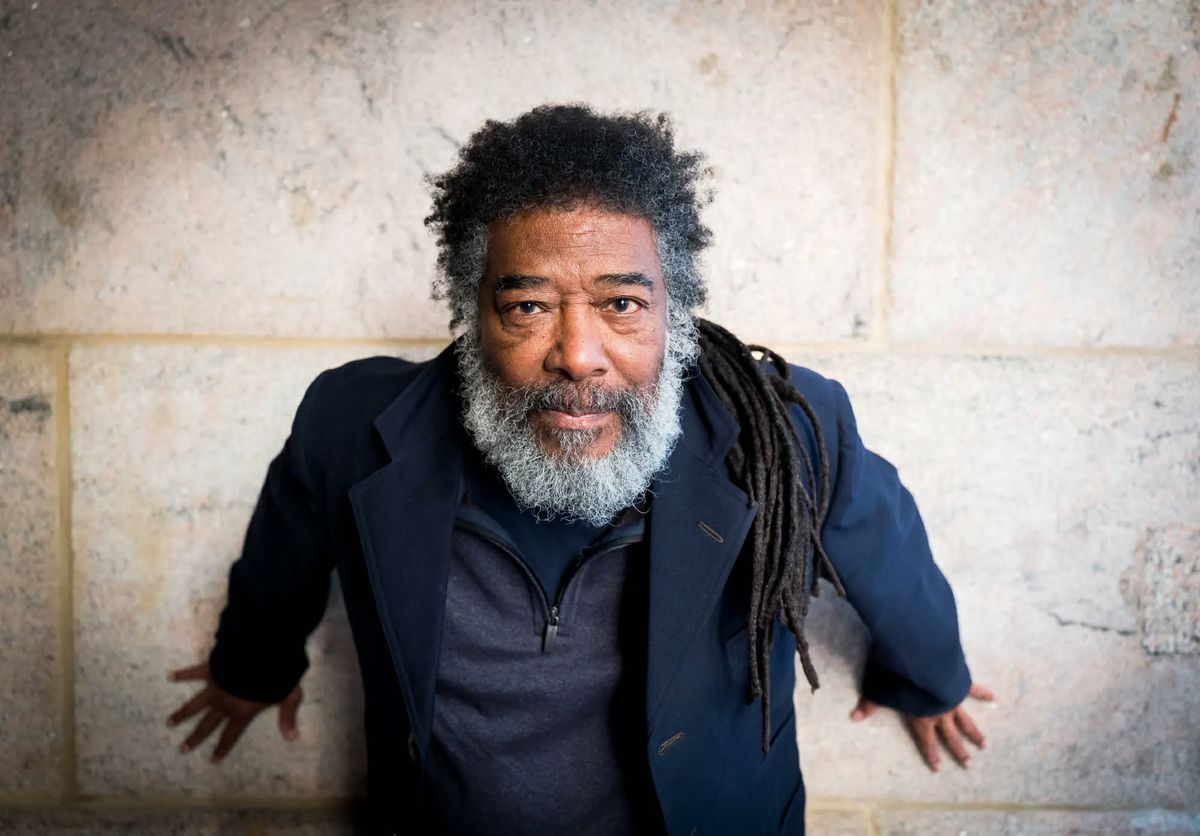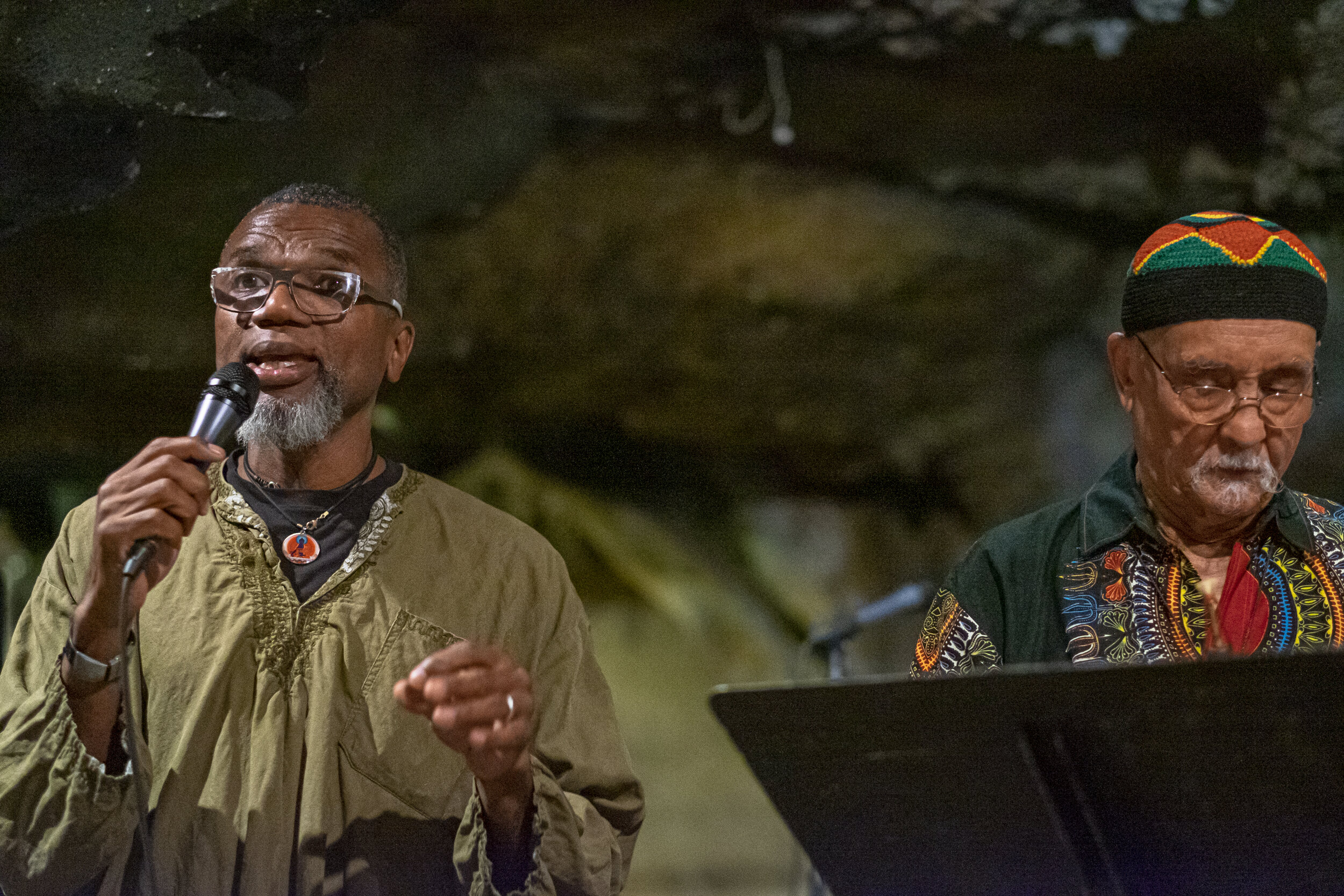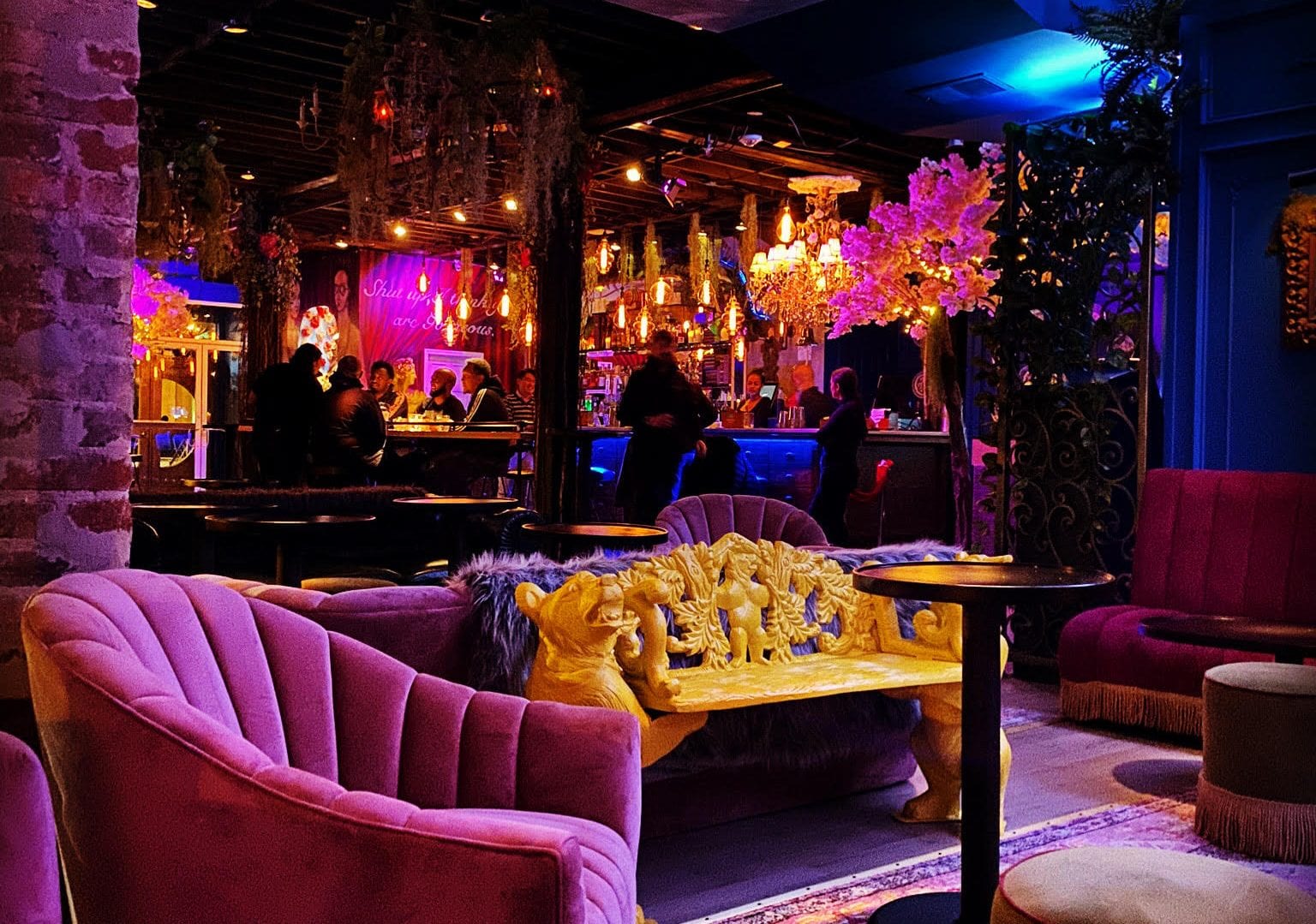Larry Willis: ‘You never know what you might run into’


Updated: Larry Willis plays a couple of New Year’s shows at Twins Jazz this Friday and Saturday. We reprint his interview with CapitalBop in anticipation of the gigs.
Larry Willis, hard bop star and fusion innovator, took over Bohemian Caverns Aug. 6 and 7, joining the Luis Faife Quartet for four swingin’ sets. On the latter night, a Saturday, I asked Willis, 67, about his career highlights and where he’d like to go in the future. The transcript is below — and here’s a warm Washington Post profile of Willis from last year.
CapitalBop: What brings you to D.C.? You live around here, right?
Larry Willis: Well, I live in Baltimore. And I lived, prior to moving to Baltimore, in Upper Marlboro, [Md.] You know, I frequented D.C. and played a lot around here – in places like Blues Alley and Twins. And Luis [Faife] asked me if I would be interested in just coming down and playing with him.
CB: How was it playing with these guys tonight?
LW: They’re extremely talented, and nothing but bright things ahead of them. They’re very gifted.
CB: Did you all rehearse?
LW: No, I wish we had!
CB: Well, that’s the spirit of jazz.
LW: Well, yeah. It all worked out, and we all had fun. I’m just so old school – I just sometimes feel that failing to prepare is preparing to fail. But by the same token, it all worked out, so what am I talking about?
CB: When you say you’re old school – you worked with Jackie McLean and Lee Morgan, and then you moved on and you did a lot of fusion. So you weren’t too old school; you didn’t stay with just hard bop the whole way through.
LW: Well, music is music. And if you open up your ears and open up your heart, you never know what you might run into. So I’ve tried to keep that attitude and that outlook about the life that I live and my attitudes about music. You can learn from anything and anybody.
CB: Tell me about some highlights, in terms of what you’ve done years ago, or recently. What sticks out to you as something that you’re especially proud of?
LW: Let me think. It’s a tough question. [Hesitates] Well, one of the things that I’m kind of proud of, is that I got a chance fairly recently – within the last eight, nine years or so – to write music and perform with symphony orchestras. And just learning about how to write for and use an orchestra … those musical colors to work with – I want to do more of that, because, you know, music encompasses such a broad spectrum. I just want to keep trying to increase my musical vocabulary.
CB: Tell me more about what you did with the orchestra.
LW: Well, I made a record. It’s available right here. [Gestures toward a CD for sale at the bar.] And I had done some string writing for Roy Hargrove, and I liked the challenge of working with an orchestra or in an orchestral setting larger than a traditional jazz quintet. And that sparked me to want to make this record – to make a record with strings. So consequently it came about.
And I have many, many friends at this wonderful school in Lakeland, Fla., Florida Southern College. A dear friend of mine, and someone whom I worked with, who’s no longer, unfortunately, with us, is Nat Adderley. And after hearing this record, you know, I was … very, very close to the faculty members there as a result of working with Nat and being involved with his aspects of the school. And they heard this and the conductor of the symphony orchestra commissioned me to write a piece of music for his orchestra. And I did, and it kind of took upon a life of its own. I’ve had a chance to perform that piece with symphony orchestras in Italy, and the National Symphony Orchestra of Ecuador. And that was an education in itself.
CB: Wow. What was the name of that piece?
LW: It’s a four-movement piece. It’s “Suite for Jazz Trio and Orchestra.”
CB: Did you draw inspiration from any particular piece of past work from someone else who had something similar to that?
[Shakes head.]CB: No – that’s great. Tell me about your relationship with Nat Adderley, obviously an amazing composer and performer himself.
LW: My big brother. I was in his band for 10 years. I actually got to know and meet Nat as a result of briefly taking Joe Zawinul’s place in Cannonball Adderley’s band. And when Cannon passed away, myself and Walter Booker and Jimmy Cobb convinced Nat to have a band. And that was the nucleus and core of the band, and I worked with Nat off and on for about 10 years.
CB: And let’s see, I guess that would be the ’70s and ‘80s?
LW: The ‘80s, yeah. In the ‘70s, I was with Blood, Sweat and Tears.
CB: That’s right – how was that?
LW: A lot of fun.
CB: We were saying before, you’re someone who has embraced a number of jazz idioms. There are people like Stanley Crouch, who say things like, if it doesn’t swing it’s not jazz. How do you respond to that?
LW: I mean, bebop has its essence, it has its roots, it has its own sense of identification. But because in that sense of identification there is a little codicil that’s called creativity, in that idiom, you are able to expand that horizon into something else. So by nature, it would have evolved – and it did. I mean, listen to the way Miles Davis was playing in 1968 as opposed to the way he was playing in 1953.
CB: And you’re saying, by nature it will continue.
LW: It will continue, because that’s the nature of the beast.
- Listen to a sample of “Fallen Hero” from Larry Willis’ album “Sanctuary” | mp3
- Listen to a sample of “Come Sunday” from his album “Solo Spirit” | mp3




